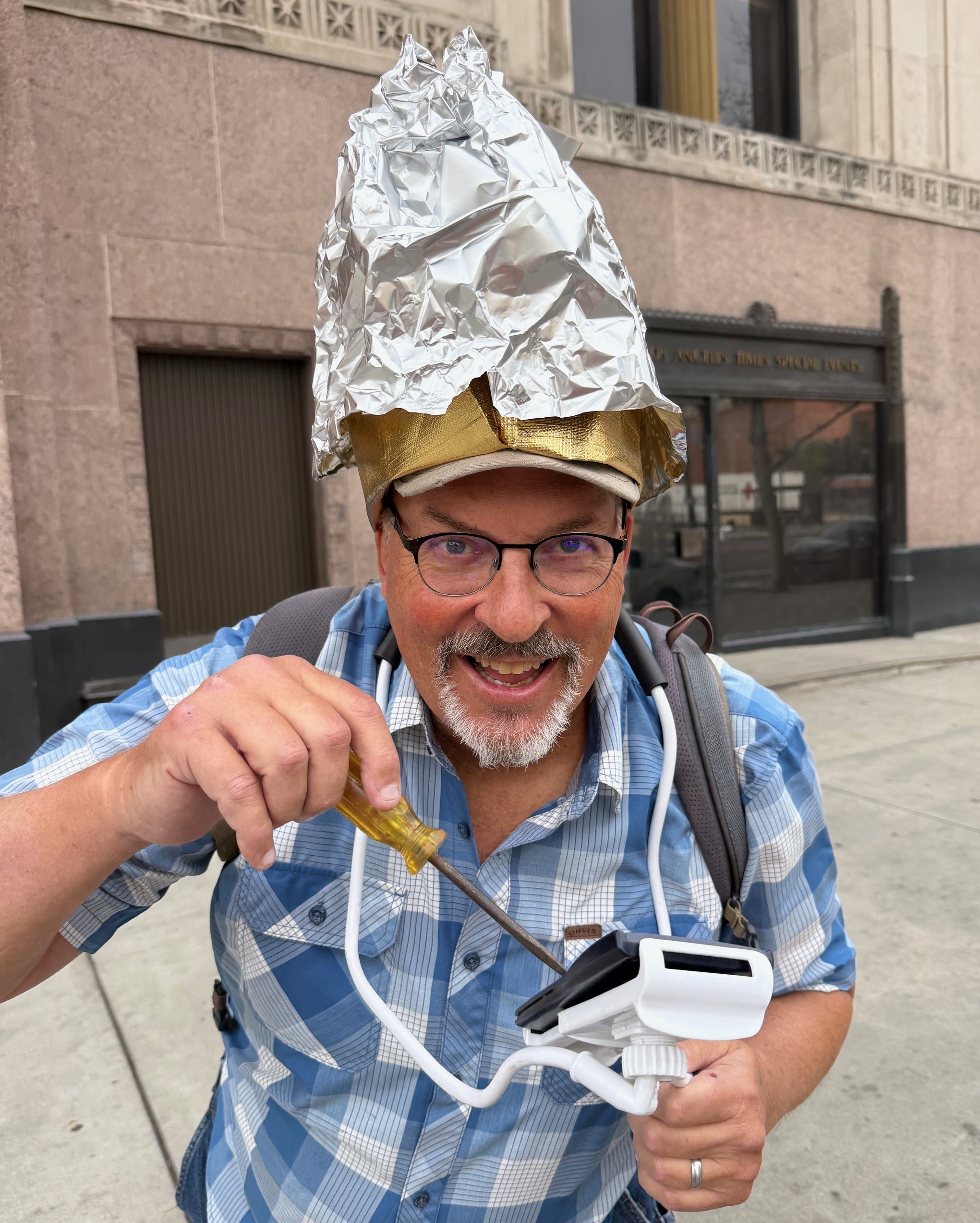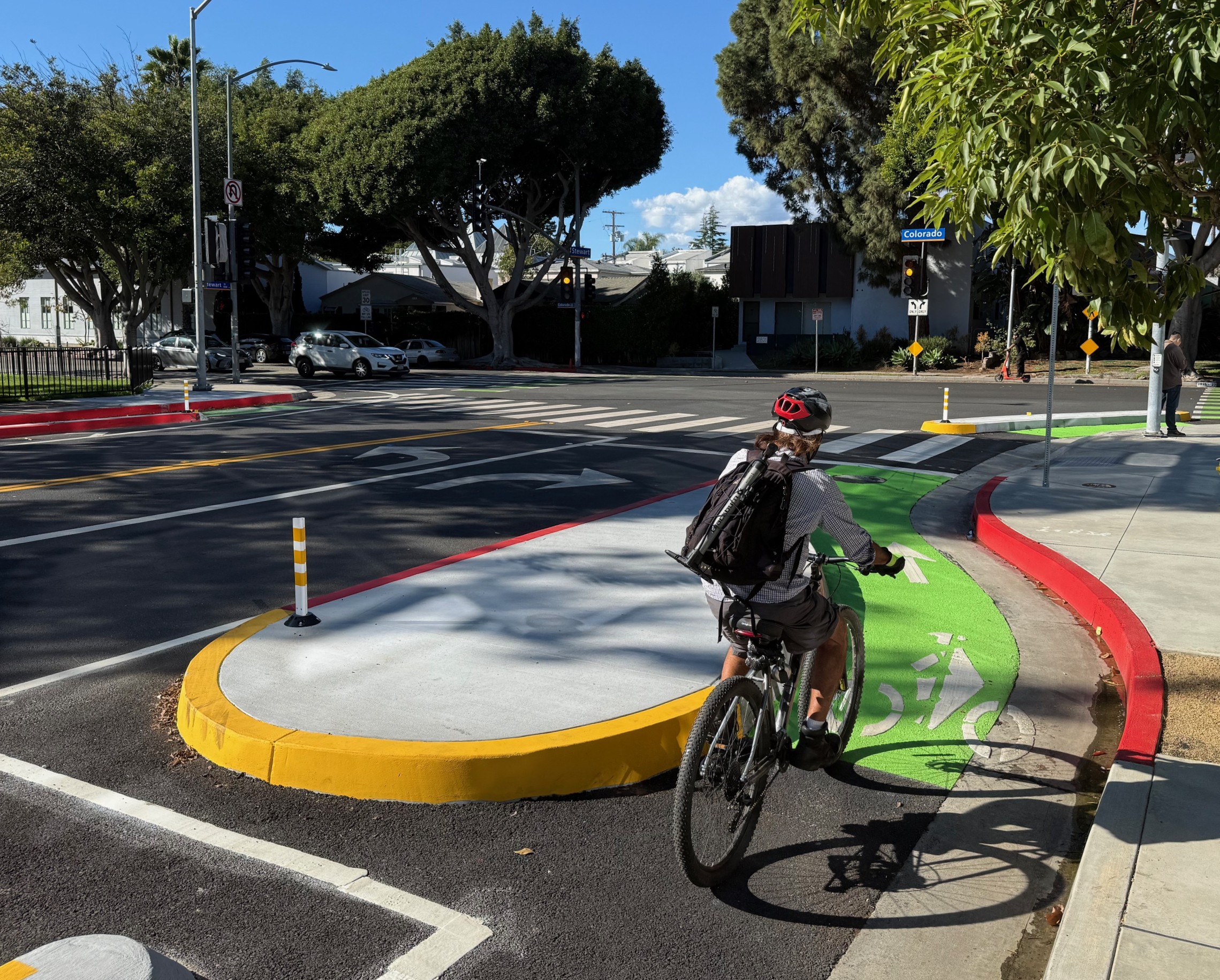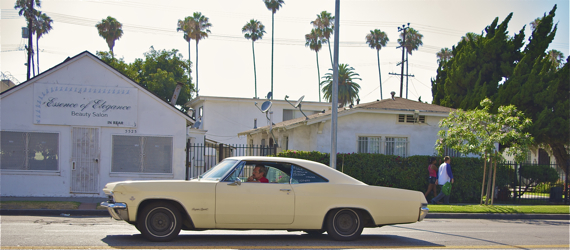
Oh, honey, no... I thought as I watched the obviously strung-out woman yank up her miniskirt and gesture insistently that passersby partake of her unkempt lady offerings.
It is not unusual to see ladies (and girls, unfortunately) of the evening working the streets on weekend mornings along S. Figueroa. It is also not unusual for them to be in questionable states of un/dress. But this level of desperation was a little out of the ordinary.
Ever the nerd, I wondered where curbing prostitution fit into the currently-open-for-public-review Mobility Element and Plan for a Healthy L.A.
Odd as that may sound, those two things were the reason I was out biking up and down South L.A.'s streets that morning. I had to be at a grand re-opening of a now-much-healthier convenience store on S. Vermont (story later this week) and decided a refresher tour of some of South L.A.'s main streets would help me put those plans into context.
As I've written many times before (basically, anything listed here), a neighborhood's context is often more of a deterrent to mobility and health than whether or not the street has a bike lane. Not that infrastructure isn't important -- it absolutely is. But, if you see semi-naked ladies strolling up and down next to your school, rec center, grocery store, or home, all the bike lanes in the world won't make you feel comfortable letting your kids -- especially girls -- near those streets.
And, if they're seated at the bus stops with their pimps, as several were this past Saturday, you may not feel comfortable letting your child take transit. While the ladies themselves can be quite friendly, their pimps can be volatile and the johns quite reckless. One nearly ran me over as he backed up at full speed without warning to get to a girl he had passed moments before.
All that said, things have apparently gotten better of late, according to one neighbor.
"It used to be like a drive-through here," he said of the otherwise quiet stretch of 92nd St. in front of his home, where girls used to gather to avoid being seen getting into cars.
Some beautification efforts at the corner and a watchful neighbor who called the police any time he saw girls on the street, coupled with more regular patrols and the efforts of a nearby hall to ensure its parties weeded out the prostitutes that tried to mix in with the crowds has helped to limit unsavory activity in the area.
Which was good to hear, but rather depressing, considering how many girls you still see out and about at any given hour of any given day.
As I write this, I realize that these musings on prostitution don't actually have that much to do with the reason I sat down to pen this article, which was to tout the fixing of a problem we highlighted last December -- the lack of any bus infrastructure at a stop at Vermont and Gage.
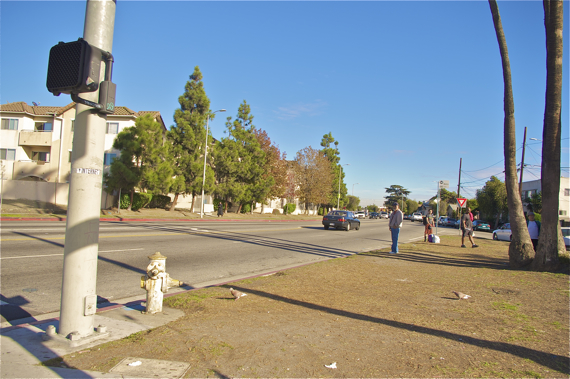
But, inevitably, when you spend time riding and walking around a geographic region like South L.A., where conditions can vary dramatically from street to street and neighborhood to neighborhood, you can't help but think about how context impacts a community's interaction with the public space.
So, as I ponder how to assess the fit of the Mobility Element or Plan for a Healthy L.A. for the communities I cover, I do have one thing clear: namely, there is no simple formula for how improvements and interventions should be prioritized.
What will do the most to facilitate mobility along prostitution-heavy areas of S. Figueroa or Western (such as pedestrian lighting, more police patrols, fewer motels, more eyes on the street, and programs to address the root causes of prostitution) is different from what is needed along S. Vermont, which might be better bus and bicycle infrastructure, more parks (like this new one), and fewer vacant lots. Vermont could also do with more reliable bus service -- the young couple with a fussy newborn (below, at the newly paved Gage stop) had been waiting 45 min. for a bus that is scheduled to run every 25-30 min.
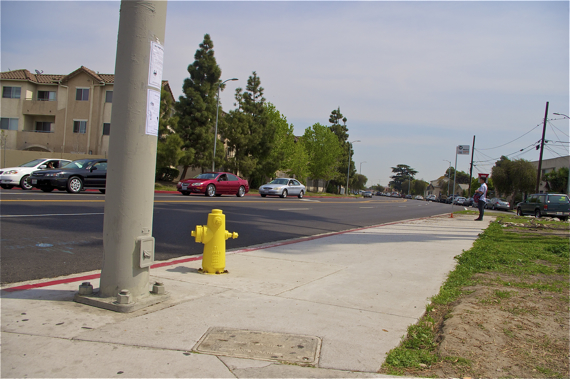
Along Cesar Chavez (as noted here), bus infrastructure and service matters, too, but pedestrian infrastructure and aid to small businesses for façade and other improvements might go a long way towards boosting mobility for families and elders. Those efforts would also boost economic development along an already important corridor, while indirectly making the street more welcoming for those using transit.
I'll be looking at these sorts of things more closely with regard to the plans, their intersections with each other, and what they mean for the communities I cover in the next few days. In the meanwhile, I'd like to thank the powers that be for finally paving the bus stop at Gage. Small step forward as it may be, it is a massive improvement over the dirt mound that bus riders had to contend with before.



